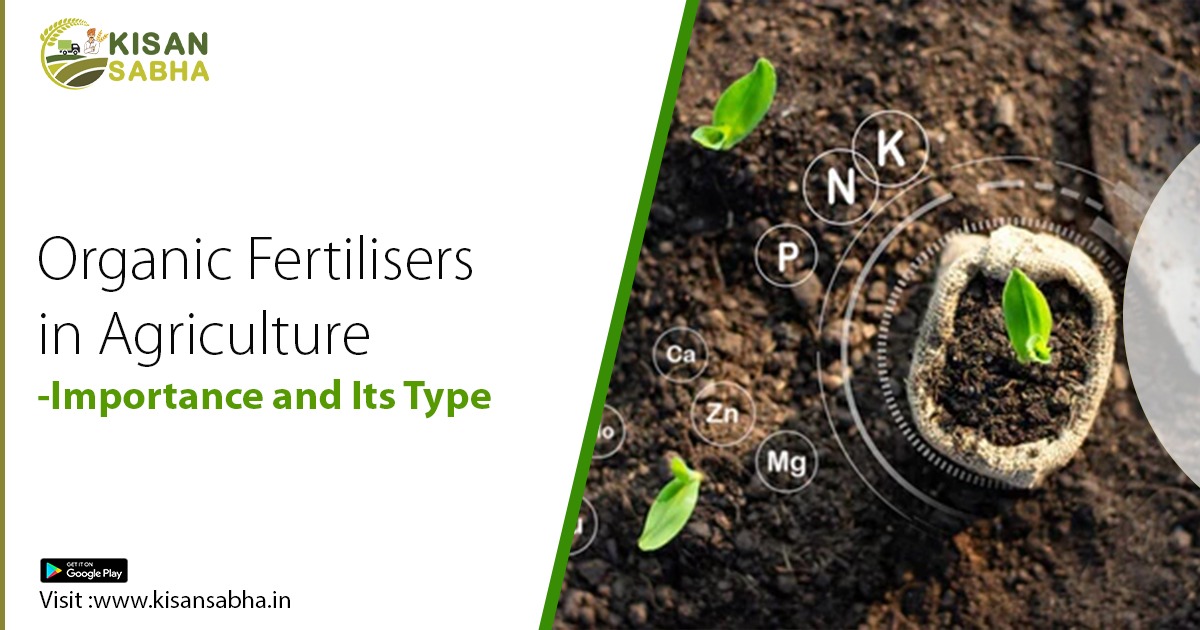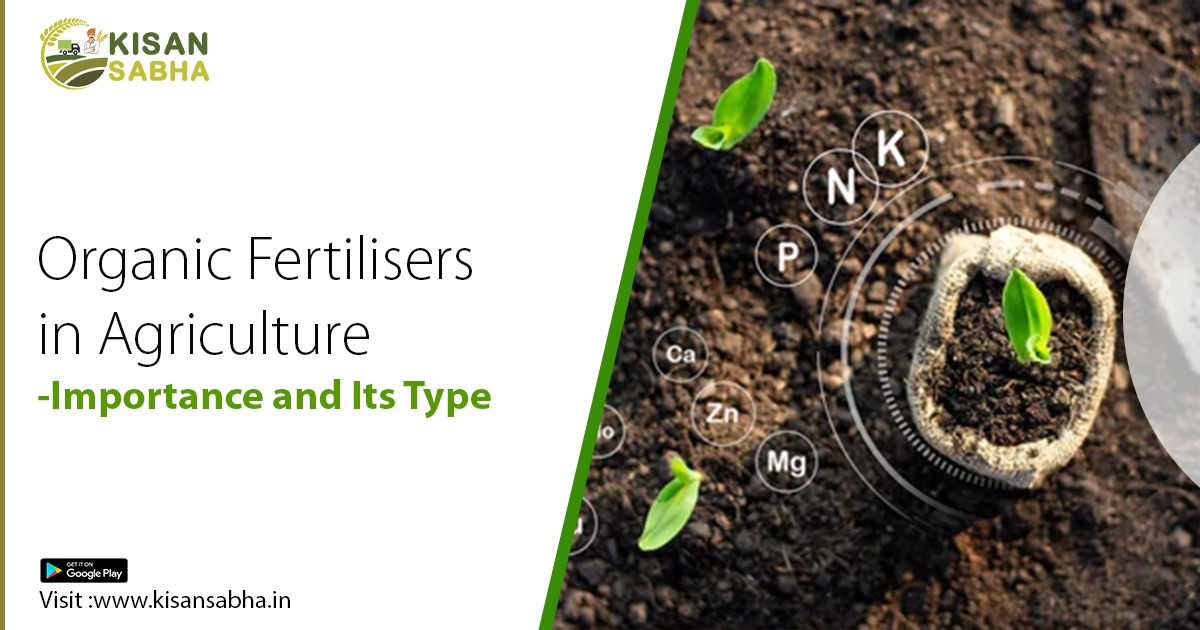This blog will discuss organic fertilisers used in organic farming. But first, let’s define fertilisers in general.
The increasing awareness about the negative impacts of chemical fertilizers on human health and the environment has led to a shift towards organic farming practices. One essential aspect of organic agriculture is the use of organic fertilizers, which are derived from natural sources such as plant and animal materials, minerals, and microbes. These fertilizers provide nutrients necessary for crop growth while promoting soil health, reducing environmental pollution, and ensuring sustainable agricultural production. This article will discuss the importance and types of organic fertilizers used in agriculture.
Importance of Organic Fertilizers in Agriculture
Organic fertilizers offer several benefits over synthetic fertilizers, including improved soil structure, reduced water runoff, increased biodiversity, and enhanced disease suppression. Here are some reasons why organic fertilizers are crucial in modern agriculture:

1. Soil Health: Organic fertilizers improve soil health by enhancing its physical, biological, and chemical properties. They increase the soil’s ability to retain moisture, promote beneficial soil organisms, reduce erosion, and enhance overall soil fertility.
2. Nutrient Availability: Unlike synthetic fertilizers that release nutrients quickly, leading to rapid uptake and potential leaching, organic fertilizers slowly release nutrients into the soil, making them available for plants over an extended period. This slow-release feature ensures a continuous nutrition supply, reduces nutrient loss and promotes long-term soil productivity.
3. Environmental Sustainability: Organic fertilizers help maintain ecological balance by minimizing the risk of groundwater contamination, air pollution, and greenhouse gas emissions associated with synthetic fertilizer manufacturing and application. Additionally, they support biodiversity by providing habitats for various soil organisms.
4. Food Safety: Using organic fertilizers helps ensure food safety since they do not contain harmful chemicals or heavy metals often found in synthetic fertilizers. As a result, consumers can enjoy fresh produce free from toxic residues.
5. Economic Viability: Adopting organic fertilization practices can save farmers money since many organic fertilizers can be made from locally available resources, thus eliminating the need for expensive imported products. Moreover, organic farms tend to have higher yields compared to conventional ones due to better soil health, ultimately resulting in greater economic returns.
Types of Organic Fertilizers
Various organic fertilizers are commonly used in agriculture, each having unique characteristics and applications. Some common examples include:
1. Manures: Animal manures, such as cow, poultry, horse, and sheep manure, are rich in nitrogen (N), phosphorus (P), potassium (K) and other micronutrients. When properly composted, these wastes become stable, pathogen-free fertilizers that can improve soil structure, water retention capacity, and aeration.
2. Compost: Composting involves decomposing organic matter like leaves, grass clippings, vegetable scraps, and farm waste under controlled conditions. The final product, known as compost, contains NPK along with numerous trace elements, hormones, and enzymes that stimulate plant growth and boost soil fertility.
3. Bone Meal: Obtained from crushed bones, bone meal is high in phosphorous and calcium, making it ideal for root development and flower formation. It also provides a slow-release source of nitrogen and traces amounts of magnesium, zinc, and copper.
4. Fish Emulsion: Derived from fish processing waste, fish emulsion is an excellent liquid fertilizer containing NPK plus amino acids, vitamins, and minerals. Due to its quick absorption rate, it serves as an effective foliar feed and seed treatment.
5. Seaweed Extract: Rich in auxins, cytokinins, gibberellins, and abscisic acid, seaweed extract improves plant vigour, stress tolerance, and yield. It can be applied directly to soil or sprayed onto leaves as a foliar spray.
6. Rock Phosphate: A naturally occurring mineral mined from rock deposits, rock phosphate is an excellent source of phosphorus for crops. Although its solubility is low, it gradually releases P upon weathering, ensuring long-term availability.
7. Green Manure Crops: Planting cover crops such as clover, buckwheat, alfalfa, or rye between main cash crops can significantly benefit soil health. Once incorporated back into the soil through tillage, these green manure crops add organic matter, improve tilth, and release nutrients locked up in their tissues.
8. Vermicompost: Also referred to as worm casting, vermicompost results from earthworms digesting organic waste. Packed with beneficial bacteria, fungi, nematodes, and protozoa, this superb fertilizer enhances soil structure, increases water-holding capacity, and promotes robust plant growth.
9. Biofertilizers: Microorganisms such as rhizobia, cyanobacteria, acetobacter, and mycorrhiza form symbiotic relationships with plants, fixing atmospheric nitrogen or solubilizing unavailable forms of P and K. Inoculating seeds or soils with biofertilizers can substantially augment crop nutrient uptake and yield.
conclusion
In conclusion, using organic fertilizers offers multiple advantages over synthetic alternatives in terms of soil health improvement, nutrient availability, environmental sustainability, food safety, and economic viability. By incorporating different types of organic fertilizers based on specific cropping systems and local resource availability, farmers can contribute to building resilient agroecosystems capable of producing healthy foods without compromising future generations’ well-being.
Visit us – http://www.kisansabha.in now !!!




